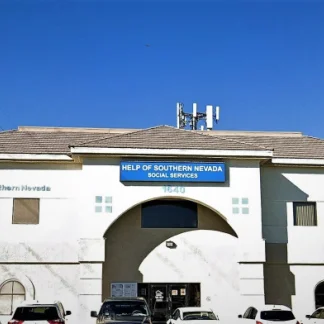Broken Chains Ministry - Addiction Intervention
Broken Chains Ministry - Addiction Intervention has been helping families throug...
HELP of Southern Nevada is a drug and alcohol rehab located in Las Vegas, Nevada. They provide dual diagnosis treatment on an outpatient basis.
Addiction-related services provided at this location include outpatient co-occurring substance abuse and mental health treatment.
This behavioral health services program takes a solution-focused, client-centered approach that provides individual and group therapy. The outpatient counseling environment allows people to attend intensive treatment on a flexible schedule while working or attending school. Screenings and assessments help determine an individualized treatment plan and the duration of outpatient addiction counseling.
Contact us for more information: (702) 369-4357

Connect with HELP of Southern Nevada by calling their admissions team directly.
(702) 369-4357 Website Get DirectionsCognitive Behavioral Therapy (CBT) is a therapy modality that focuses on the relationship between one's thoughts, feelings, and behaviors. It is used to establish and allow for healthy responses to thoughts and feelings (instead of unhealthy responses, like using drugs or alcohol). CBT has been proven effective for recovering addicts of all kinds, and is used to strengthen a patient's own self-awareness and ability to self-regulate. CBT allows individuals to monitor their own emotional state, become more adept at communicating with others, and manage stress without needing to engage in substance abuse.
Motivational Interviewing (MI) is a clinical approach to helping people with substance abuse issues and other conditions shift behavior in positive ways. It is more goal-oriented than traditional psychotherapy, as MI counselors directly attempt to get clients to consider making behavioral change (rather than wait for them to come to conclusions themselves). Its primary purpose is to resolve ambivalence and help clients become able to make healthy choices freely.
Trauma therapy addresses traumatic incidents from a client's past that are likely affecting their present-day experience. Trauma is often one of the primary triggers and potential causes of addiction, and can stem from child sexual abuse, domestic violence, having a parent with a mental illness, losing one or both parents at a young age, teenage or adult sexual assault, or any number of other factors. The purpose of trauma therapy is to allow a patient to process trauma and move through and past it, with the help of trained and compassionate mental health professionals.
Motivational Interviewing (MI) is a clinical approach to helping people with substance abuse issues and other conditions shift behavior in positive ways. It is more goal-oriented than traditional psychotherapy, as MI counselors directly attempt to get clients to consider making behavioral change (rather than wait for them to come to conclusions themselves). Its primary purpose is to resolve ambivalence and help clients become able to make healthy choices freely.
Trauma therapy addresses traumatic incidents from a client's past that are likely affecting their present-day experience. Trauma is often one of the primary triggers and potential causes of addiction, and can stem from child sexual abuse, domestic violence, having a parent with a mental illness, losing one or both parents at a young age, teenage or adult sexual assault, or any number of other factors. The purpose of trauma therapy is to allow a patient to process trauma and move through and past it, with the help of trained and compassionate mental health professionals.
Trauma therapy addresses traumatic incidents from a client's past that are likely affecting their present-day experience. Trauma is often one of the primary triggers and potential causes of addiction, and can stem from child sexual abuse, domestic violence, having a parent with a mental illness, losing one or both parents at a young age, teenage or adult sexual assault, or any number of other factors. The purpose of trauma therapy is to allow a patient to process trauma and move through and past it, with the help of trained and compassionate mental health professionals.
Broken Chains Ministry - Addiction Intervention has been helping families throug...
U.S. VETS is a non profit rehab located in Las Vegas, NV. U.S. VETS have and inp...
HELP Youth Center is a private rehab located in Las Vegas, Nevada. HELP Youth Ce...
Community Counseling Center is a private rehab located in Las Vegas, Nevada. Com...